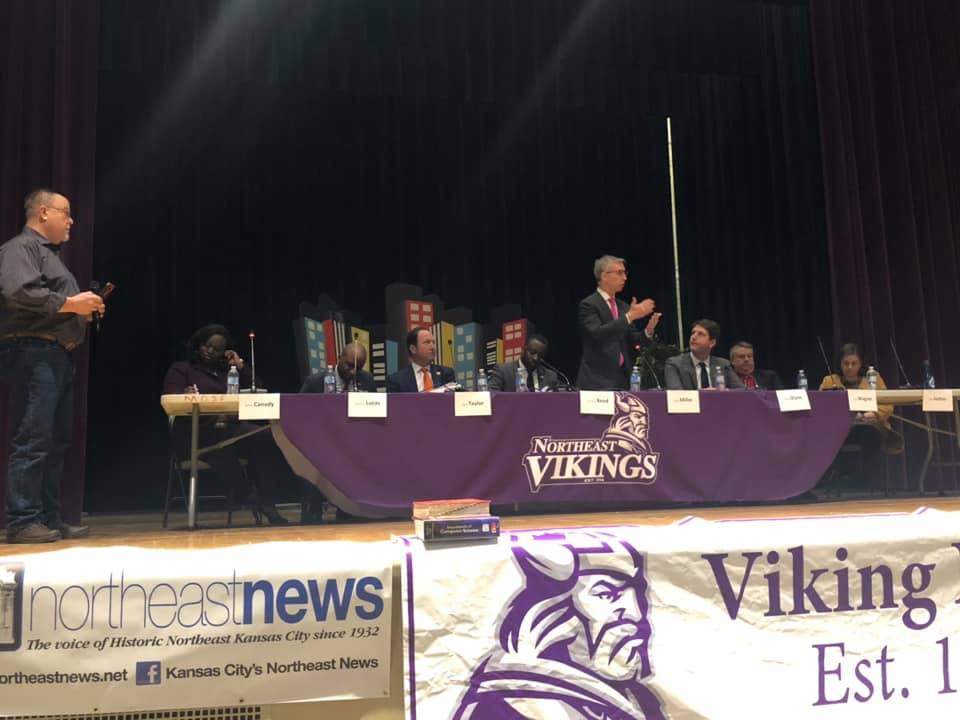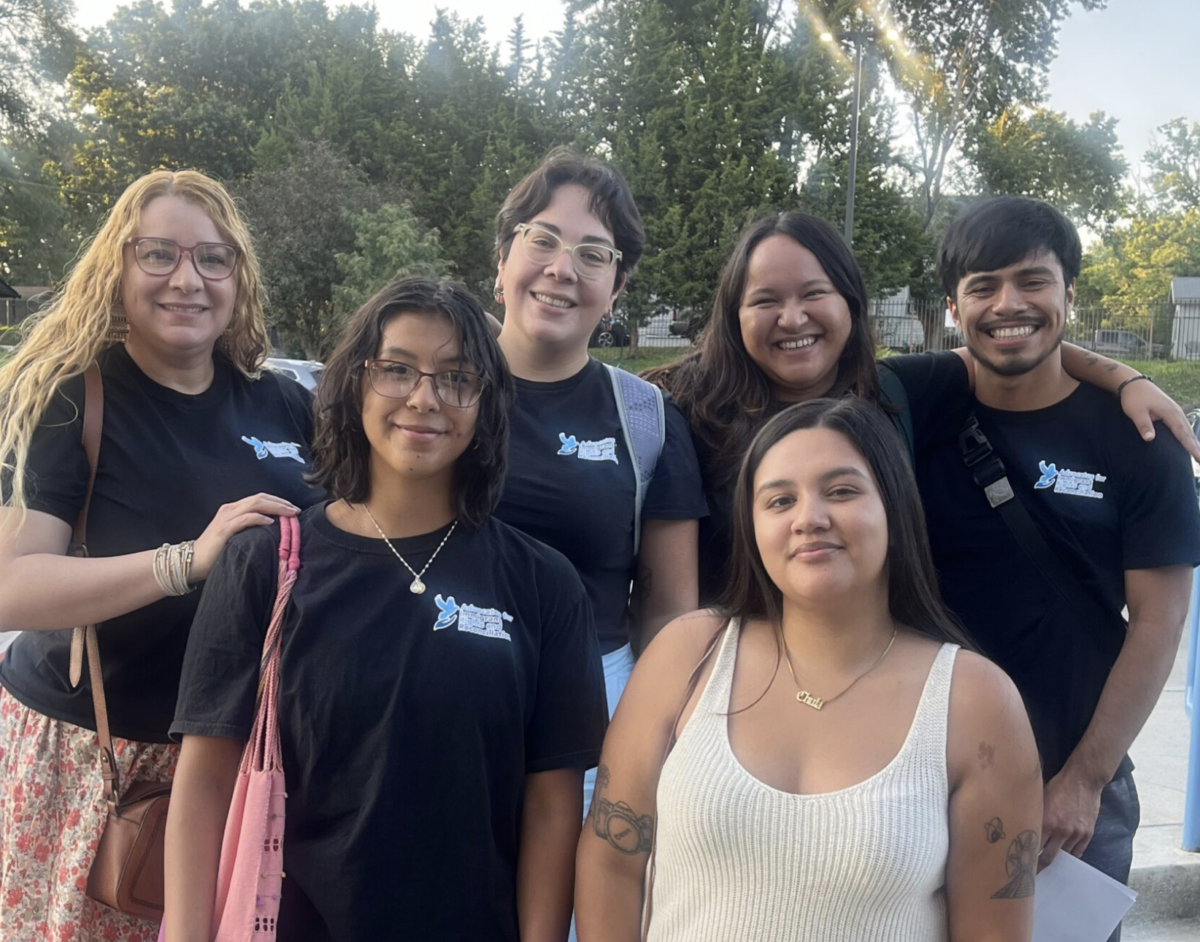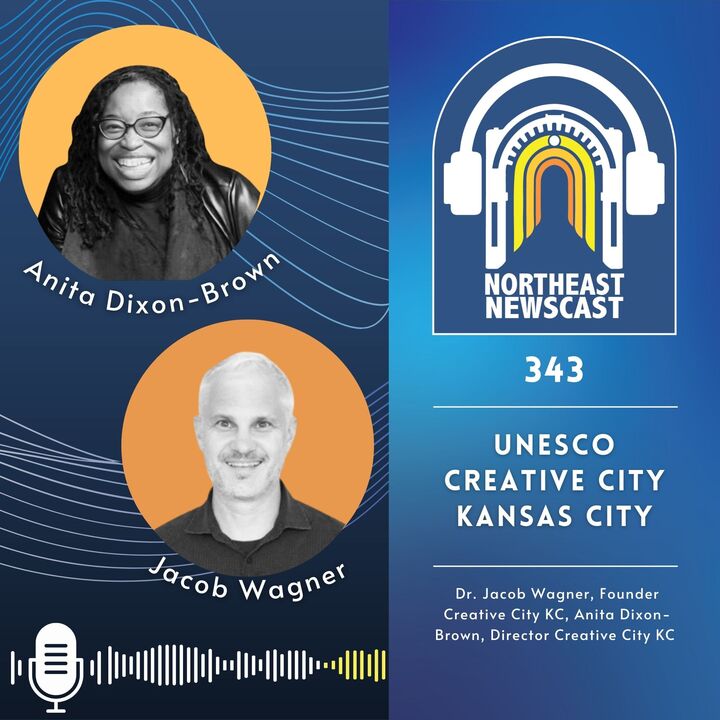Eight Kansas City mayoral candidates lined the stage at Northeast High School Saturday, Jan. 26, 2019, to address their plan of action if elected the next mayor. The panel discussed issues pertinent to the Historic Northeast, such as blight, incentivizing small businesses, trash pickup scheduling, transient camps, plans for revitalization, and the Pre-K tax.
Many of the questions posed by the audience were not answered during the forum due to time constraints. The Northeast News sent the remaining questions to all candidates who attended the forum as a follow-up questionnaire. Three candidates responded and we have posted their answers below.
Candidates at the Mayoral Forum included 3rd district council members Quinton Lucas and Jermaine Reed, 5th District Councilwoman Alissia Canady, Mayor Pro Tem Scott Wagner, 6th District Councilman Scott Taylor, 4th district councilwoman Jolie Justus, Steve Miller, attorney in Kansas City who previously served as chairman of the Missouri Highways and Transportation Commission, and Phil Glynn, who owns a small business in the Crossroads District which finances housing and development projects.
What unique qualities set you apart from other candidates?
Phil Glynn: I’m a business owner. I have brought billions in investments for housing and jobs across the country. We need more quality housing for working families and seniors. We need more quality jobs that our citizens have the skills and reliable transportation to thrive in. This will stabilize our neighborhoods. I have more experience than any other candidate building housing and creating jobs.
Scott Wagner: As the sitting Chairman of Finance, I understand how our $1.664 billion budget works and how we can apply it to improve our neighborhoods. As a former neighborhood president of the Indian Mound neighborhood I have an experience that is unique. I am not only aware of issues related to the Northeast, but of neighborhoods and their interaction with City Hall. It has informed my eight years on the City Council and has provided the urgency to work on a number of projects in the Northeast. I have championed the CID Loan Fund that allowed the formation of the Independence Avenue CID, the $30 million Paseo Gateway Project that is creating development along Independence Blvd, and at 8th & Paseo. I have championed the redevelopment of Independence & Paseo that will see a new $12 million interchange later this year and caused the demolition of the old Royale Inn. I pushed and was successful in seeing the Kansas City Museum move from the control of Union Station to the City’s Parks & Recreation Department, which is almost completely renovated. I was able to successful place the Indian Mound and Lykins Neighborhoods in Urban Renewal Areas, thus creating opportunities for tax abatement for those who invest in their homes. I led the charge for the redevelopment of the former Hardesty Federal Complex. I have fought for Scrap Metal legislation on behalf of this community twice. I’m different from every candidate because I have championed this community over and over again and will continue to do so as Mayor.
Jolie Justus: For the last twenty years, I have dedicated my career to giving back to my community. As a pro bono lawyer, a Missouri State Senator and a city councilperson, I have a proven track record of getting things done and standing up for our most vulnerable citizens. I am a pragmatic leader who works across many divides. I am an honest broker who treats everyone with respect. Making sure that all voices have a seat at the table is the first step to bringing people together with competing agendas in a volatile political environment. My record demonstrates my ability to build bridges rather than walls, and that is exactly what I will do as mayor of Kansas City. More collaboration– less agitation.
For Council members who voted in favor of changing the name of Paseo Boulevard, how do you justify that decision? How can we trust you to represent our voices, when that decision was in direct opposition of the majority?
Phil Glynn: I am not currently a member of the Council. It is time for new, fresh leadership in KC.
Scott Wagner: I voted against the name change. It was clear that the means to provide popular support for the change was not undertaking: meaning that no one bothered to ask the residents of the area themselves.
Jolie Justus: I believe Kansas City was remiss to wait so long before naming a prominent public memorial for the Rev. Martin Luther King. When community leaders made the name change proposal, I listened to all sides of the debate. My vote represented the input that I received from all stakeholders and an overdue effort to honor an American Hero.
In regards to the airport project: I am concerned about the cost and actually having a successful completion. How will you ensure we complete this project on time and under budget?
Phil Glynn: I have experience building major infrastructure projects across the country. I will bring transparency and accountability to this process.
Scott Wagner: A year ago I had predicted that the group we selected to develop the Airport project was the wrong one. I said the project would become more expensive, take longer and would shift the financial risk back to the City. I was correct. Today, I continue to ask hard questions about how this project is proceeding. To ensure that promises are kept I will demand accountability from both the developer and the airlines. I do not agree that we should spend an extra $45 million to get what was promised when we spent the first $23 million. I will demand in our Development Agreement a time line and penalties when it is not adhered to. Frankly, I appear to be the only Mayoral Candidate who is.
Jolie Justus: Large, complex projects deserve our concern, but concern should not shake our confidence. The voters supported this project by an overwhelming margin. We will get the work done, but that means getting the work done right. We should not be surprised that when the detailed technical planning began, some assumptions changed – but the plan voters adopted protects taxpayers. The airlines and the developer are taking 100% of the risk on this project and we will have project that will make our city proud.
What is your education plan? How do our KCPS students close the academic gap and get more students college ready? What are your thoughts on the Pre-K plan?
Phil Glynn: To reform our economic incentive programs so they don’t erode the tax base on which our schools depend. Then I will bring investment for affordable housing and jobs that will stabilize neighborhoods. Stable neighborhoods will lead to higher quality schools. How do our KCPS students close the academic gap and get more students college ready? If we create a stable economic environment around our schools, we will see higher levels of student achievement. What are your thoughts on the Pre-K plan? I support the concept of pre-K but believe the current proposal is unworkable.
Scott Wagner: I think the latest news indicates this gap is closing. I believe KCPS and all school districts should take the responsibility of educating our children, including Pre-K. The City’s responsibility is to connect the product of the schools to employers. Workforce Development is where I will place my emphasis. We have needs in a number of categories: high tech, logistics, construction just to name a few. We have a number of programs that seek to train people in these areas and yet the connections between individuals seeking jobs, the organizations that train for these jobs, and the companies that have the jobs, are not connected. The Mayor’s office can be the hub that brings these spokes together.
Jolie Justus: As Mayor I will work with all stakeholders – parents, students, school administrators and teachers, to ensure that the city is a partner in education. This means an open dialogue with the city, a focus on stable neighborhoods and student mobility and harnessing the resources necessary to help our students succeed. I am a huge proponent of early childhood education and I personally support the Pre-K proposal on the April 2019 ballot. During my eight years as a Missouri State Senator, I introduced and worked for universal pre-K funding for the entire state. In the absence of action at the state level, I am willing to take a chance on a local solution. I have seen the success of similar programs in other cities and I’m willing to try it here at home. Datashows that kids who enter kindergarten after attending quality pre-K are more likely to succeed moving forward. Quality early childhood education results in lower crime, a more educated workforce and better outcomes for children and families. In Kansas City, with a minimal investment in pre-k financing, we can make a tremendous difference in the lives of young children, families, and the community. In the absence of other solutions to meet this need, I support the Pre-K sales tax as it will appear on the April 2, 2019 ballot.
What will you do to ensure there is affordable housing in our city/ downtown?
Phil Glynn: I have built thousands of units of high quality housing for working families and senior citizens across the Country using public private partnerships. That is what I will do as Mayor.
Scott Wagner: A year and a half ago I started a discussion on our Housing Policy through a Resolution I introduced. The Housing Policy is being discussed right now and part of that includes Affordable Housing. Here are the historic numbers: to provide one unit of affordable housing in a multi-family setting the average cost has been $200,000. For a single family home it is more like $30,000-$50,000 per home, assuming a rehab of some kind. If you want more affordable housing in downtown you will pay a lot of money for it, which means you need funding. Right now we depend almost solely Federal Funds for what we do. The strings that are attached to those Federal Funds make it problematic. The Missouri Low Income Tax Credits and Historic Tax Credits that have provided the means for developing affordable housing in the past have either been set aside or are under attack. If we want to be impactful we will need to come up with a local funding source. Currently I have offered an idea for a taxing option that is currently being discussed in our Housing Committee that would raise $3.8 million per year as part of a $75 million plan. The taxing option may provide a means to not only fill financial gaps to build affordable housing downtown, but allow us a find to stabilize, maintain and build affordable housing all over the City.
Jolie Justus: The city needs to intentionally create and maintain dense, diverse housing options. This effort includes creating incentives and requirements to achieve those goals. Furthermore, our professional urban planners should foster ideas that build upon – not replace – the historic nature of Kansas City’s Northeast neighborhoods. We must repair damage done to the city in the Mid-20th Century, which constructed socio- economic barriers to divide the city. Those divisions served as tourniquets and denied movement in and around certain geographic parts of the city, which caused predictable trauma. So, in addition to housing policy, the city can continue to make progress on public transportation policies that make it possible for citizens to move around the city as employees or consumers. Effective transportation makes it possible live, work, and shop in diverse areas of the city. Public transportation is one of my top passions and priorities. My dream is a public transit system where everyone is only a 15-minute wait for a no-transfer ride to work, school and basic community services.
I taught in KCPS for 8 years. Every year we lost at least one student to gun violence. How will you address this problem? How will you address violent crime in our area?
Phil Glynn: I will ensure our police resources are allocated to ensure adequate coverage in every neighborhood in KC. Then I will focus on the economic root causes of violence by increasing investment in affordable housing and quality jobs.
Scott Wagner: It starts with getting the various silos that impact this issue talking and working together: Police, Preventative Services, Prosecutors and having a jail that can keep violent offenders incarcerated so they are not right back out on the streets. But you can’t enforce your way out of a problem necessarily. You have to have economic development that intentionally looks to provide jobs in our area, and development that provides entertainment venues for our youth. If there are no alternatives to violent activity in our neighborhoods, you can’t get the violence out of our neighborhoods.
Jolie Justus: Violence is a long-term community problem and solutions will also take long-term planning, strategies, and policy changes. We have had multiple task forces, crime commissions, reports and plans to address the issues that lead to violent crime and I will renew the push for coordinated services and implementation of the best practices recommended by these plans. This includes the implementation of a comprehensive Youth Master Plan, to effectively coordinate the services, supports and opportunities that youth need to develop and thrive. The plan should continue to include input and coordination between the city, school officials, young people, parents, and community organizations. We must increase the focus and funding for social workers within KCPD and place an emphasis on the CIO programs and funding.
What role can KC play in leading the way to a more sustainable future? How can the city better care for and promote the natural environment i.e. river, native trees/plants, curbside compost, single use plastics… U.S. Cities are now at the forefront in the fight to reduce the harms of climate change, to improve energy efficiencies and to move us to a clean energy future…what have you done, and what are you planning to do as mayor to meet the goals of the Paris Climate agreement?
Phil Glynn: We can encourage more environmentally sustainable construction practices and we can ensure the quality of our water resources by investing in our river. I was in Paris when the original climate agreement was struck talking with global business leaders about how to implement it. I have experience building affordable housing and businesses across the country to LEED standards and other renewable energy benchmarks. This will be a priority for me as Mayor of KC.
Scott Wagner: I am proud of bringing two Property Assessed Clean Energy (PACE) programs to the City. These programs allow property owners the opportunity to provide necessary improvements to their property to lower their energy bills, and helping the environment. As Mayor I will continue my work in this area by working on how we can expand our tree canopy in the City, continuing our commitment to transit by supporting an Independence Avenue Max or Streetcar line and continuing the City’s commitment to green infrastructure and construction.
Jolie Justus: I agree with your assessment that US Cities and localities now stand at the forefront of the fight against climate change. I support the policies that have led to Kansas City receiving national recognition for battling climate change, but we must work collectively to make sure KC is resilient to the permanent changes to our climate. I will monitor proposals for a “A Green New Deal” and develop a Municipal New Green Deal that will not only increase our resiliency and help battle climate change, but it will have an emphasis on transportation, job creation and housing.
What new ideas do you have to address empty and neglected buildings/ houses in the Northeast? Specifically, in creative, restorative ways?
Phil Glynn: I am a board member of the Northeast Community Center. Through my work in the neighborhood I have seen neighborhood organizations accomplishing amazing things. I pledge to work with existing, Northeast-based organizations to help the solutions they are implementing grow to scale.
Scott Wagner: We need to shift our focus from demolition when it is too late, to stabilizing a structure at the earliest opportunity. Once a building is listed as ‘dangerous’ it is difficult to save the structure. Part of the challenge is being able to get access to the structure. I look forward to trying working with the Northeast’s state representatives to see how we might be able to access properties faster so that we can stabilize them more quickly and make them available to new owner/occupants. But if we want to fill these homes then we have to create non-traditional, new financial models to get houses that can have new occupants, actually in them. There are still areas of the Northeast where it is difficult to get home loans. If we can be successful in funding a Housing Trust Fund, part of its job can be to “guarantee” traditional bank loans. By taking care of some of the risk traditional banks have, we can incentivize more investment in some of our more troubled housing stock.
Jolie Justus: The city must repair damage done by ill-conceived urban planning and transportation policies pursued in the 20th Century. I believe the Northeast neighborhoods continue to suffer from those policies. This effort includes creating incentives and requirements to achieve those goals. I want to increase funding to organizations like Legal Aid of Western Missouri and expand public- private partnerships with organizations who are working right now to keep people in their homes and reclaiming and rehabbing vacant properties. As the city continues to grow and prosper I want to transfer those successes and best practices to the neighborhood level. This means using the economic development tools and policies that have have been catalysts downtown to restore and grow our neighborhoods.
When it comes to policing, as mayor, what will you do to ensure that KC does not repeat what happened in Ferguson, MO? Does local control have an impact on your response?
Phil Glynn: I will focus on the economic root causes of crime to build a safer KC.
Scott Wagner: Kansas City is the only City without local control, and yet issues occur in Ferguson, Los Angeles, Chicago and cities that have it. In this case, the Mayor is a member of the Board of Police Commissioners and I, as Mayor, would make sure to raise issues of profiling, community interaction and a social interaction agenda consistently. It’s only when making it a re-occurring concern that we can avoid what happened in Ferguson.
Jolie Justus: Fortunately, the Kansas City Missouri Police Department and the Jackson County Prosecutor’s Office bring a much higher level of professionalism to their work than other cities across the state and country. Even so, I know that maintaining that professionalism is a never-ending project that deserves attention from public officials, community groups, and engaged citizens. We must continue to fund and support the KCPD CIO and social worker program and use the relationship between KCPD and the Northeast Neighborhoods as a template for success throughout the city. Regarding “local control” of the police department, I favor a police department that is governed by a police board, and I am open to exploring how that board is appointed. The devil is always in the details, and I am willing to listen to all sides of an issue. Ultimately, I am open to alternative governance options if all stakeholders have input in the process.
Further mayoral candidate information will be in the March 6, 2019 issue of the Northeast News.



















